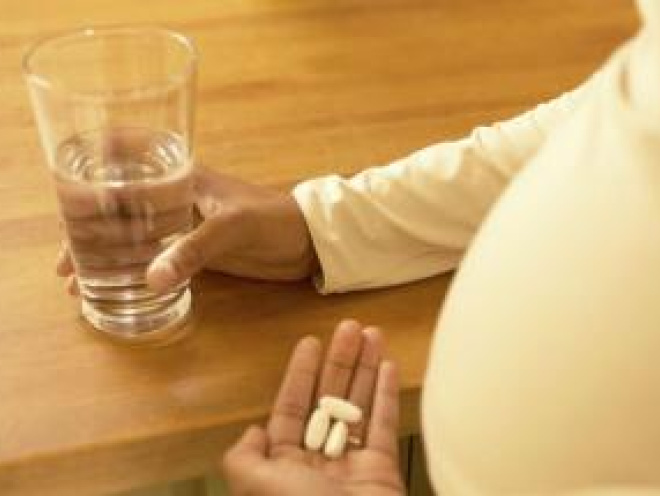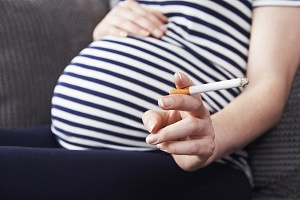Prescription, over-the-counter or recreational drugs during pregnancy can have an effect on your baby. Find out about how to avoid harmful drugs here.
As with everything in pregnancy, you need to be careful about what you consume. This is particularly true when it comes to drugs.
And no, drugs don’t just mean things like cocaine or ecstasy. Drugs can include the medicines prescribed by a GP or other practitioner. They can be bought legally or illegally.
The word 'drug' actually means any kind of tablet, medicine, suppository, inhalant, ointment or oil. It can even include the ‘natural’ herbal supplements you might have thought were harmless.
How do drugs affect unborn babies?
Any drugs you take enter your bloodstream and pass through the placenta to your baby. The effects of drugs on your baby depends on their stage of development as well as the amount of drug you take (Drugs.ie, 2019).
Your unborn baby’s rapidly developing body is particularly vulnerable to substances in their environment. Their liver is not ready to deal with drugs that you might take entering their body. That’s why you need to be especially careful with medicines and taking drugs while pregnant (Syme, 2004).
When in pregnancy are drugs harmful?
Drugs can be harmful to an unborn baby at any time during pregnancy.
- Drugs taken during the first trimester can produce congenital malformations (teratogenesis). The riskiest period is from the third to the eleventh week of pregnancy.
- Drugs taken during the second and third trimester can affect the growth and development of your growing baby. They can also have toxic effects on the baby’s tissues.
- Drugs given before you’re at term or during labour can have adverse effects on labour or the newborn baby after they’re born.
Sometimes, it might not be possible to see the effects of drugs immediately but they might appear later in life. For example, through adverse effects on intellectual, social and functional development (NICE, 2018).
Tips for taking drugs and medicines safely in pregnancy
Approximately 1% of congenital malformations are thought to be due to prescription drug use during pregnancy. Not enough is known about the adverse effects they may have on the developing baby (Chan et al, 2012).
To be as safe as possible when taking medicines and drugs during pregnancy, it’s best to:
Check over-the counter medicines with your doctor or pharmacist
This is important before buying them for yourself. They will be able to recommend alternative drugs if needed and the safest treatment for you and your baby (NHS, 2016a).
Check information about the effects of that medicine on your baby
You should do this before taking any prescribed or over-the-counter medicines during pregnancy. You can also find information about medicines in pregnancy in the bumps (best use of medicines in pregnancy) website (NHS, 2016a).
Avoid drugs in the first trimester
If possible but, if necessary, drugs should be used in the smallest effective dose (NICE, 2018).
Opt for more established drugs
It's better to use drugs that have been in use for a long time (rather than newer drugs) because their safety (or lack of) for unborn babies has already been established (Sachdeva et al, 2009).
Tell anyone advising you on health or drugs that you’re pregnant
It might be your doctor, pharmacist, dentist, or someone else advising you. They can help you make decisions by balancing your health needs against any possible risks to your baby (NHS, 2016a; NICE, 2018).
Check herbal medicines are safe
You can talk with your doctor, pharmacist or a qualified herbalist before taking any herbal medicines or tablets. Fruit and herbal teas sold in supermarkets are generally safe. But be careful with preparations brewed by family or friends, or more unusual teas sold only in health food shops (NHS, 2016a).
Check whether alternative treatments are safe
You can do this with your doctor, pharmacist or a qualified practitioner before using them. This could include any homeopathic remedies, aromatherapy preparations or massage oils (NHS, 2016a).
If you’re already taking prescription drugs
If you are taking any prescription drugs, you will need to speak to your doctor about whether these are likely to have any effect. Ideally, it’s best if you do this before you become pregnant.
Some drugs increase the need for vitamins such as folic acid, which is vital in early pregnancy. In some cases, you may be advised to change your prescription to something that is safer during pregnancy (NICE, 2018).
Drug addiction in pregnancy
If you feel you have a drug problem in pregnancy, do speak to your midwife or doctor (NHS, 2016b). It can still be possible to give up taking drugs during pregnancy, although you will need skilled support.
A number of specialist maternity departments across the country care for women who have a problem with drug use. Many hospitals also have staff who are specially trained to understand and help drug addiction.
This page was last reviewed in July 2018.
Further information
Our support line offers practical and emotional support with feeding your baby and general enquiries for parents, members and volunteers: 0300 330 0700.
We also offer antenatal courses which are a great way to find out more about birth, labour and life with a new baby.
NHS Choices has information about drugs and alcohol in pregnancy.
The website FRANK offers anonymous help with drug addiction, and can put you in touch with local support organisations.






